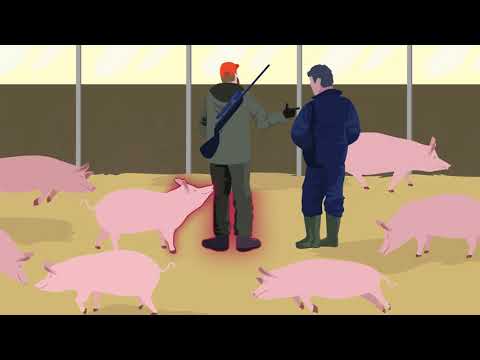African swine fever: EFSA assesses measures to prevent spread

EFSA has identified strategies for managing wild boar at different stages of an epidemic A widespread occurrence of an infectious disease in a community at a particular time of African swine fever (ASF): what should be done before, during and after. Wild boar are known to play an important role in the spread of the disease.
In a scientific opinion Opinions include risk assessments on general scientific issues, evaluations of an application for the authorisation of a product, substance or claim, or an evaluation of a risk assessment published today, EFSA experts investigate the density of the wild boar population Community of humans, animals or plants from the same species in Europe, and assess measures to reduce it and keep infected wild boar away from uninfected ones. They also identify ways to detect the disease early.
Measures such as intensive hunting and not feeding wild boar should be implemented to reduce the risks of outbreaks. When an epidemic is ongoing, activities that may increase the movement of wild boar should be avoided (e.g. intensive drive hunts).
Experts could not establish a threshold A dose or exposure below which adverse effects are not detected for wild boar density below which the virus would not take hold – ASF has spread in areas where the presence of wild boar is low.
The opinion highlights the importance of a regular dialogue between all involved stakeholders to increase preparedness.
Christian Gortazar, chair of EFSA’s working group on ASF, said: “Experts agreed that building awareness in society and providing incentives to people who report on wild boar carcasses are essential to fight the disease.”
Passive surveillance The reporting and investigation of increased mortality, other signs of serious disease or significantly reduced production rates with an undetermined cause in a targeted animal population – reporting of dead wild boar – remains the most effective way to detect new ASF cases at an early stage in previously disease-free areas.
Call for comparable data
The opinion stresses the need to harmonise the way in which information on wild boar is collected across the EU to make data more comparable.
To fill data these gaps, EFSA is funding a project – ENETWILD – aimed at collecting and harmonising data on the geographical distribution and abundance of wild boar across Europe.
Links to science
How to contact us
EFSA Media Relations Office
Tel. +39 0521 036 149
E-mail: press [at] efsa.europa.eu (Press[at]efsa[dot]europa[dot]eu)
(Only if you are a member of the press)
Ask a Question Service
You have a question about EFSA’s work? Contact our Ask a Question service!